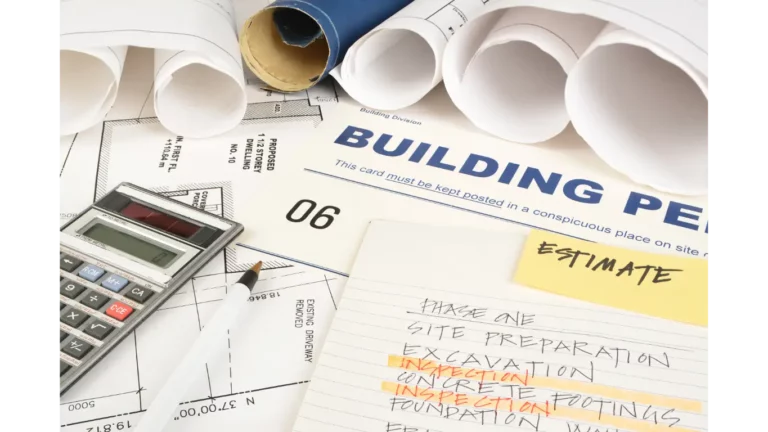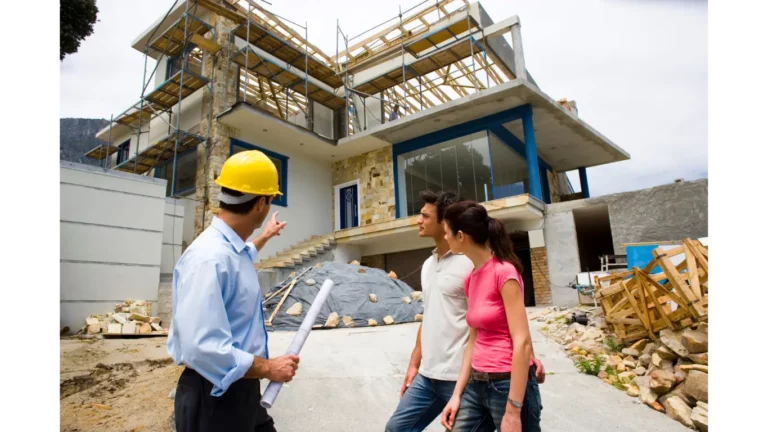(Series) Top 3 Things to Know Before you Remodel
We’ve spent a lot of time in our homes in recent years. With current market uncertainty, many of us will stay put while craving an inspirational refresh. Sometimes we must address urgent unforeseen repairs caused by leaks and weather while the true motivation of increasing the equity in our homes takes larger projects like remodels and additions. Regardless of how involved you as the homeowner are, the key to your project running smoothly isn’t just about the design, but proper planning and execution.
In this series we’ll explore how to prepare for your project, how to select the right contractor, and how to manage your remodel so it stays on track and within budget. If you have any questions along the way or have any questions about your own home improvement project, ProHow’s here for you every step of the way.
Top 3 things to know before you remodel series:
- Part 1: How to Scope Your Remodel
- Part 2: Pick the Right Contractor for Your Remodel
- Part 3: (You’re here!)
Part 3: Keep your remodel on track
Once you’ve scoped out your home remodel project and selected a contractor (or even if you decide to DIY), it is now time to start the actual renovation process. Although you may feel that the people working on your team are capable of carrying/finishing the renovation themselves, you still need to remain in control of your project. It is up to you to keep your project on track and within budget.
With any home improvement project, there will always be unforeseen circumstances that pop up. The key is to have a timeline and a budget in place so that you can keep the project on track, despite any hiccups. Most renovation projects end up taking a few weeks longer and costing 20% more than originally planned, so it is important to budget for these extra expenses. Your budget, as well as your preferred timeline, should be highly organized and specific to avoid unnecessary spending and having to delay plans. This high level of organization paired with a strong line of communication between you and your contractor are crucial to ensure your project stays on track and is of the highest quality. Maintaining an active role in your remodel will also help you prevent work disputes, or any other common catastrophes associated with a renovation.
Table of Contents

Keep your remodel within budget
Before you started your home improvement project, you should have created an itemized budget plan with specific aspects of your project prioritized over others. Part of keeping on track is closely following this budget plan and not allowing yourself, or your contractor, to persuade you to spend more on something than you had originally planned. However, unexpected costs will most likely arise from fluctuations in material prices, use of unexpected materials/labor, or just because the original price estimation was off. This is why you should have already allocated about 10-15% of your original budget towards unexpected costs, but there are still a few things you can do to prevent having to use these funds or from furthering any financial stress.

Avoid change orders that increase scope and cost
Another way to avoid overspending is to be stingy about sticking with the original budgeting and renovation plan. A change order is the industry term for any changes from the work your contractor agreed to do in your original contract. Change orders usually come up when there has been a change in scope or when unforeseen aspects arise in the project. At times, these changes may be necessary but remember that it is extremely easy to go over budget once you agree to a change order. Your original budget was designed to encompass the expenses associated with all the elements in your original scope. It will be incredibly hard to keep this budget the same once a change order is in place, as you are to additional elements of the project that you had not originally planned.
If you are trying to avoid change orders and adhere to your budget as best as you can, you may still be able to make small changes to your project. It’s extremely important to keep your itemized budget updated as your project takes place. If you end up spending more or less on a certain material or labor/demolition expenses, take note of this. When you accurately track what you have spent so far, you may find that you had originally allocated too much or too little money to a certain category and can make the necessary adjustments without impacting your budget. The sooner you can make these adjustments, the more likely your project will adhere to your budgeting guidelines. Your contractor will see that you’re paying close attention to your spending plan and may be more motivated to stay within its constraints.

Consider alternate materials if you’re exceeding your budget
One of the easiest ways to save some money during your renovation project when you feel expenses are beginning to creep past your original budget is to consider using alternative materials or remodeling strategies that may cost less. For example, if you originally planned hardwood floors for your project, consider using laminate instead, or if you were planning to use marble, consider ceramic tile. If you need to save even more, you can consider revamping already existing structures in your home rather than replacing them. For instance, rather than ripping out your kitchen cupboards and buying/building new ones, consider refinishing the ones you already have with some paint or added detailing.
In summary, managing your renovation project budget can be challenging, but with careful planning and budgeting, unexpected expenses can be minimized. It is important to stick to your original budget as much as possible, considering alternative materials or remodeling strategies if necessary. Change orders should be avoided, if possible, as they can quickly cause expenses to spiral out of control. Updating your itemized budget regularly throughout the project will allow you to make adjustments and ensure that you stay within your budget guidelines. By following these tips, you can increase the chances of a successful renovation project that meets your expectations and stays within your budget.

Dealing with construction delays
Like your budget, the initial deadline you set for your renovation project will most likely need to be moved back. Unexpected things such as a delay in material shipment or just a poor initial estimate of how long a task will take often arise with home remodeling projects. However, there are a few things you can do to try to prevent your project from exceeding its initial timeline to minimize needing to pay for additional labor/material expenses and dealing with the added stress of living in an unfinished home. To keep your remodel on track with your intended timeline, you should begin with a detailed schedule of completion dates/milestones listed for the different tasks/elements associated with your project. Keeping this schedule updated as the renovation process moves along will help you stay organized and increase the likelihood of wrapping up on time.

Create a schedule for your remodel with your contractor
After you choose the contractor for your project, you should work with them to refine the initial rough outline of the schedule for the renovation. Discuss the schedule in more detail with your contractor to set dates and important milestones pertaining to when certain materials are expected to come in, when demolition is occurring, when they expect to be working on the individual elements of the project. For instance, if you are remodeling an outdoor patio space, you are going to want to list what days the old patio is being demolished, when you expect the new pavers/lumber or other associated materials to arrive, what day you expect to be working on the foundation, what day you expect to be laying down the flooring materials, what day the railings will be installed, etc. This is going to take a lot of communication between you and your contractor but will help ensure a timely completion while keeping you in the loop of the project’s progress.
If you have questions or concerns about the schedule your contractor helped you create (e.g.: they tell you something you thought would only take a few days is going to take much longer, or the order of how they want to complete things seem inefficient) you can always reach out for a second opinion from a Pro at ProHow. ProHow connects you with an experienced contractor over video call so you can go over your newly developed schedule for the second opinion you might need to find out if the plan is efficient and correct.

Keep your schedule updated throughout the remodel
Once you have a descriptive timeline established and agreed upon with your contractor, you are going to want to keep this timeline close so you can update it as the project moves along, just like your budgeting plan. Even though you may have planned out all the minor details during the scheduling of your project, you have to go into it expecting delays especially when something doesn’t take as long as initially thought. Perhaps the shipment of your materials comes a few days early and an aspect of your project that you thought you would start next week can begin now, or maybe something goes wrong with the shipment, and it’s delayed. Either way, you are going to want to update your timeline and be able to make adjustments when unforeseen circumstances do arise. Make sure that the people working on your team have access to your timeline and can see these real-time updates.

Track all aspects of your home improvement project to hold everyone accountable
Finally, an effective way to stay on track is to make the effort to remain extremely organized throughout the renovation. This includes not only updating your timeline, but also keeping track of items like receipts, taking note of when people on your team are coming in to work on the project, keeping track of all your contracts and agreements, maintaining project records, and regularly checking in on the project’s status. These are all preventative measures you can take to avoid unwanted delays. If the people on your team see that you are putting in the effort to stay involved enough to be keeping lists and checking in with them, they too are going to be more motivated to stay on track. Also, if anything goes wrong (e.g.: materials didn’t ship, conflicts with the contractor, workers who don’t show up on time) you will have the records you need to address the problem directly.
To summarize, planning and organizing are crucial in keeping your renovation project on track. While unexpected delays may still arise, having a detailed schedule and updating it regularly can help you stay on top of the project and make the necessary adjustments. Effective communication with your contractor and team members is also important to ensure that everyone is on the same page and working towards the same timeline. By taking proactive measures such as keeping organized records and regularly checking in on the project’s status, you can avoid potential delays and ensure a successful and low-stress renovation experience.

Maintain Effective Communication to Ensure a Quality Job
You hired the contractor to assist you in your project, so don’t be intimidated questioning why, how, and when they are doing things. A good contractor should be able to answer all your questions in an effective way and should not be making decisions without you or ignoring your concerns. Maintaining a good line of communication with your contractor will make the renovation process smoother and your contractor is more likely to provide you with true quality work. You are also less likely to run into disputes with the people on your renovation team and will be able to address any issues with workmanship more effectively, so be sure to establish effective communication channels from the start.

Establish your communication style upfront
Setting the tone for communication with your contractor begins early when you first reach out to them. You should have chosen someone that was good at getting back to you and showed signs of respect and professionalism. However, you should look out for someone that appears to be telling you everything you want to hear all the time. Your contractor should be letting you know when things may cost more than you initially thought or will take longer than assumed, and if they aren’t, they may just be trying to please you so that you are more likely to go with them.
Part of encouraging a contractor to be upfront about the project also comes from how you are interacting with them. You should make yourself available to them, and if you have hours of the day where you aren’t reachable, they should be made aware of this. You also need to be able to regulate your reaction to what they tell you, even if it is not good news. If your initial reaction to your contractor telling you there has been a delay in a material shipment is to get irritated or to place the blame on your contractor, your contractor is not going to be upfront the next time around and you are going to be left wondering why something didn’t get done on time or why you weren’t informed.

Document your communication agreement with your contractor
When you have your first big meeting with your contractor after you have hired them to go over the details of your budget and planned timeline, there are also a few other things relating to how you will be communicating that you should establish:
- What is the best way to reach you?
- What hours of the day should I expect you to be reachable? Here is when I will be…
- When should I expect you at my home? If there is a day this is not the case, can you let me know prior?
- Can you keep me updated as you guys start and finish various aspects of the project?
- Can you tell me when materials arrive and let me check their quality before they are put to use?
- What is a good time for you to meet with me for general check-ins and walk-throughs each week?
Once you get the answers to these questions you should document them. This way, you and your contractor will be obligated to adhere to these standards, and if your contractor begins to slack with communication, you will have a reference to pull to show that this was their initial agreement, and you would appreciate their adherence to this.

Communicate frequently with your contractor and be involved in your remodel
Maintaining strong communication is also the best way to ensure your renovation project is completed with quality workmanship. It is much easier to fix an aspect of the project you are not content with during the renovation than after the project is finished. To do this, you are going to want to establish frequent check-ins and walk-throughs with your contractor. Weekly check-ins will provide your contractor with the opportunity to discuss what they expect to be doing each day that week and provides you with the opportunity to stress a detail of the project that you want done in a specific way. Frequent walk-throughs will give you the opportunity to address concerns in real time; if you see a paint job that is not up to your standards, point it out. If you notice uneven tiling or the new cabinets appear to be much cheaper than what you thought you paid for, point it out. You should also ask to see materials as they arrive at your home. Check their quality and make sure you got what you ordered. It is much easier to address an issue with material quality before the materials are installed.
Don’t be afraid to talk to your contractor about these concerns, it is your home, and you are ultimately the one living in it after the renovation is done. If you feel your contractor is brushing off your concerns, if you have a question about the integrity/quality of your project, or if you just feel like something might not be looking right, you can always reach out to a Pro at ProHow where you can get the second opinion over video call from a trusted contractor. A ProHow Pro can help you decide whether your concerns are something that need to be addressed with your contractor or if they’ll be addressed later in the remodel.
In conclusion, clear communication is key to a successful renovation project. When working with a contractor, it is important to establish a strong line of communication from the beginning and maintain it throughout the project. By setting expectations, making yourself available, regulating your reactions, and establishing frequent check-ins and walk-throughs, you can ensure that your project is done with quality workmanship and any concerns are addressed in real-time. Remember that it is your home, and you have the right to voice any concerns or questions you may have. By documenting the initial agreement, you can hold your contractor accountable for adhering to the agreed-upon communication standards. Overall, a good contractor should be willing to answer your questions, involve you in the decision-making process, and prioritize your concerns.

Dealing with contractor work disputes
Although your expectations should be realistic for your contractor (they are not superman after all) you need to be someone they can approach when issues arise. There may come a time when you feel the need to hold your ground on a matter of dispute. You will have to make some sacrifices during your renovation, but you should never feel like your contractor is the cause of this sacrifice. Dealing with work disputes can be difficult and awkward, however, as a homeowner undergoing a renovation, you need to be prepared to reach an effective resolution. Some issues can be dealt with and worked through with your renovation team, but you should also be able to determine when it might be a good idea to call it quits with your contractor.
Most work disputes that arise with contractors are typically catalyzed by delays, quality of workmanship, or contract discrepancies. However, the good news is that if you established and maintained effective communication with your general contractor, you have a good chance of avoiding these.

Understand which delays are within your contractor’s control and which are not
Delays in material shipments, labor, or obtaining necessary permits can be frustrating to deal with during your renovation, and it may seem most reasonable to blame the messenger (who is typically your general contractor). At the same time, it is important to communicate with them to figure out the root cause of the problem, as it may not be their fault. Are the delays being caused by outside factors that your contractor doesn’t have much control over? Were materials not shipped in time because of bad weather? Perhaps labor shortages are limiting the availability of specialty contractors. These are some of the things that you can’t necessarily blame on your contractor, and you may just have to be patient. However, if the reason the material shipment is delayed is because your contractor forgot to get the order it on time, or if timeline of the project keeps getting shifted back due to people not showing up when they are supposed to, then this may be the time to bring up your concerns about your contractor’s professionalism to them directly.

Ensure your expectations of workmanship and schedule align with your contractor’s priorities
Another reason some may find themselves irritated with their contractor is when there are concerns regarding workmanship. Most contractors are good at their jobs and put in the effort to make sure that your project is completed to your standards and best practices, but it is possible that you run into one that is only concerned with getting the job done, whether it’s quality or not. When you do your frequent walk-throughs with your contractor, you point out any areas of concern you have regarding craftsmanship or best practices, but if the contractor either doesn’t address your concerns or is continuously doing things that are careless/unsafe, then it may be time to have a sit down talk with them where you voice your concerns and how your relationship will be structured moving forward. If something doesn’t look right to you or you’re second guessing what your contractor is telling you, schedule a quick video call with a ProHow Pro so you can get an objective second opinion from a trade professional who can provide guidance on what to bring up with your contractor.
The contract you signed with your contractor will be a good point of reference to use if you find yourself needing to work through any issues with them. In the contract, you should have listed the agreed terms of their employment where the tasks they are expected to complete, a general timeline, and a payment schedule have been listed out clearly with no room for misinterpretation (refer to Part 2 of this series). You can always refer to this contract if you feel your contractor is not adhering to it and even ask to update/change a few things if you feel like something needs to be added or reworded. When you make any of these change orders, you want to make sure to get it written down on paper, signed by both parties, and provide a copy both to yourself and your contractor. If you’re working with a lawyer for your contracts, be sure to include them in discussions and they can help mediate any disagreements between you and your contractor.

Terminating your contract with your general contractor
If there are still no improvements in the professional relationship and quality of work after you have communicated your concerns and tried to resolve any issues between you and your contractor, it may be time to consider firing your contractor. However, firing your contractor is not an easy process and will most likely end up costing you more in the long run, so this should truly be a last resort. If you make the decision that terminating your contractor’s role in your project is what’s best for you, then you should first look at how your contract with them outlines termination, as there may be a certain notice time that you have to give them or a payment plan you must adhere to. It is a good idea to include a lawyer at this point, regardless of their earlier involvement, to ensure a clean separation between you and your contractor and prevent any possibility of a lien being placed against your property by a disgruntled contractor. If your contractor was not adhering to the contract, you may be able to argue that you do not necessarily have to follow the termination clause as the contract is no longer valid, but this may result in lawyer involvement and taking legal action.
After you have read and understood the contract’s clauses about termination, you should set up a meeting with your contractor, and if they are part of an association or company, you can request that someone higher up is also present. You should have documentation and the proof you collected highlighting how the contractor is not meeting the terms of the agreement. You will need to present objective evidence and sound reasoning to justify your claims and why they are grounds for termination. Your discussion should cover what will happen with materials and permits that are on order, any outstanding payments you may owe them, and documentation that they have paid all their subcontractors and waive the right to place any liens on your property. If your contract includes any performance penalties, make specific arrangements on how these will be paid since your contractor will not have much incentive to follow up with you once the contract is terminated. At this point, you’ll need to start your search for a new contractor including going through the whole vetting process again so make sure you are prepared for the mental labor, timeline delays, and extra expenses that that entails.
Work disputes with a general contractor can be emotionally draining, but it is definitely worth trying to address and work through issues to avoid the process of termination and finding another contractor. However, sometimes it needs to be done, in which case you will need to hold your ground but also be understanding. Effective communication is the best way to avoid getting into this situation in the first place, but things can still happen. If you ever feel like you need questions answered, reassurance, or any clarifications about the workmanship of your contractor, you can always reach out to a Pro at ProHow where you can video chat with a professional that can answer any questions regarding your project to help you make that final decision.

Stick to the plan to get the best outcome
Home remodel projects can be exciting, but they can also be stressful if you are not prepared to manage them effectively. To keep your project on track, it is essential to have a plan in place for managing your budget and ensuring your contractor is providing quality workmanship. Sticking to your budget requires discipline and it is important to monitor your expenses carefully throughout the project. Avoiding delays in your project also requires proactive management, and regular check-ins with your contractor can help you stay informed about the status of the work. In the event of a dispute with your contractor, it is important to remain calm and approach the situation with a level head. By following these guidelines, you can ensure that your remodel is completed on time, within budget, and to your satisfaction.
Effective communication with your contractor is key to a successful renovation project. Keeping an open line of communication can help you avoid misunderstandings and ensure that your contractor is meeting your expectations. Regular check-ins and walk-throughs can help you stay informed of the progress of the work and can give you the opportunity to address any concerns as they happen. When disputes arise, it is important to handle them in a professional manner and to seek assistance, if necessary. By working collaboratively with your general contractor, you can ensure your home improvement project is completed to your satisfaction and within your budget. With a little bit of planning and attention to detail, you can enjoy your completed renovation for years to come.



